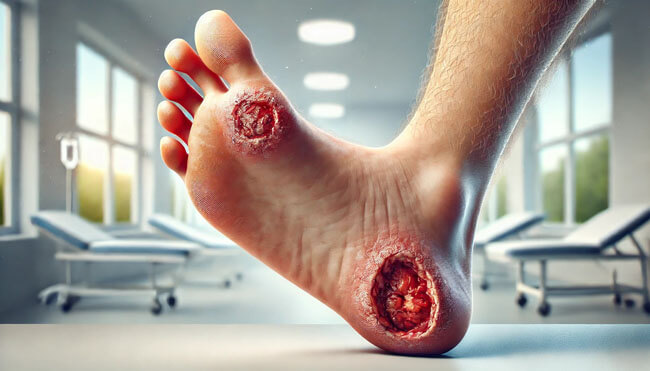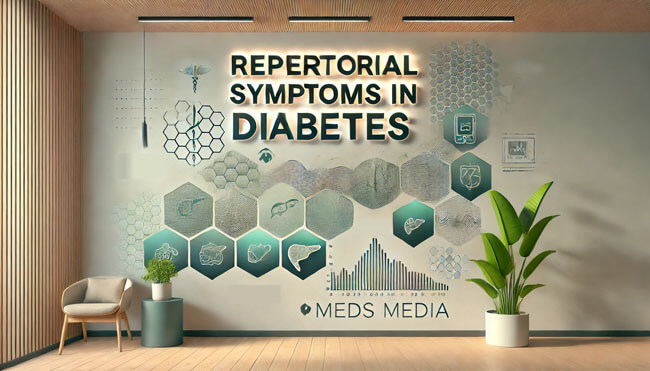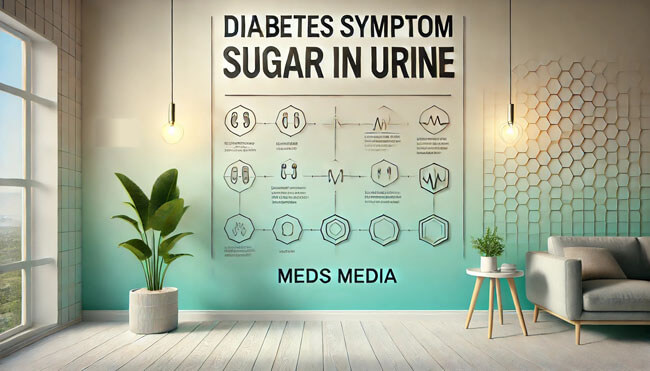
Diabetes mellitus (DM) is a group of chronic metabolic disorders characterized primarily by persistent hyperglycemia (elevated blood glucose levels). This condition arises from various underlying factors, including defects in insulin production, action, or both. With a prevalence spanning across all demographics and regions, diabetes remains a significant public health challenge due to its profound impact on individual health, quality of life, and healthcare systems worldwide.
This article delves into the mechanisms, causes, complications, and management of diabetes mellitus, with particular emphasis on homeopathic approaches and remedies, providing practical insights for individuals seeking alternative and holistic treatments.
What is Diabetes Mellitus?
Diabetes mellitus is not a single disease but a spectrum of metabolic disorders sharing the hallmark feature of hyperglycemia. It results from impaired insulin secretion, resistance to insulin’s effects, or a combination of both. Insulin, a hormone secreted by the pancreas, plays a crucial role in regulating blood glucose by facilitating its uptake into cells for energy or storage.
Key Characteristics of Diabetes Mellitus
- Hyperglycemia: Persistent elevation of blood glucose levels.
- Metabolic Dysregulation: Alterations in carbohydrate, fat, and protein metabolism.
- Progressive Complications: Long-term damage to nerves, blood vessels, eyes, kidneys, and other organs.
Types of Diabetes Mellitus
1. Type 1 Diabetes (T1DM)
This autoimmune condition primarily affects children and young adults. It occurs when the immune system mistakenly attacks insulin-producing beta cells in the pancreas, leading to an absolute deficiency of insulin. Individuals with T1DM require lifelong insulin therapy.
2. Type 2 Diabetes (T2DM)
This is the most common form of diabetes, often associated with obesity, sedentary lifestyle, and genetic predisposition. It results from insulin resistance (reduced efficacy of insulin in facilitating glucose uptake) and a relative deficiency in insulin secretion.
3. Gestational Diabetes Mellitus (GDM)
GDM develops during pregnancy and usually resolves after childbirth. However, women with GDM are at higher risk of developing Type 2 diabetes later in life.
4. Other Specific Types
These include rare forms of diabetes caused by genetic defects, pancreatic diseases, or drug-induced hyperglycemia.
Pathophysiology of Diabetes Mellitus
1. Insulin Secretion Defects
Insufficient production of insulin by the pancreas, as seen in Type 1 diabetes, disrupts glucose uptake and metabolism, causing hyperglycemia.
2. Insulin Resistance
In Type 2 diabetes, cells become less responsive to insulin, resulting in higher glucose levels despite normal or elevated insulin production.
3. Metabolic Effects
The inability to utilize glucose effectively leads to:
- Increased Fat Breakdown: Producing ketones and risking diabetic ketoacidosis (T1DM).
- Protein Degradation: Causing muscle wasting.
- Elevated Blood Lipids: Raising cardiovascular risk.
Causes and Risk Factors
Type 1 Diabetes
- Genetic predisposition (e.g., HLA genes)
- Autoimmune factors
- Environmental triggers (e.g., viral infections)
Type 2 Diabetes
- Obesity
- Physical inactivity
- Unhealthy diet
- Genetic factors
- Advancing age
- Ethnic predisposition
Gestational Diabetes
- Hormonal changes during pregnancy
- Obesity or excessive weight gain during pregnancy
Signs and Symptoms of Diabetes Mellitus
- Frequent urination (polyuria)
- Excessive thirst (polydipsia)
- Unexplained weight loss
- Extreme hunger
- Fatigue
- Blurred vision
- Slow-healing sores
- Recurrent infections
Complications of Diabetes Mellitus
Uncontrolled diabetes can lead to acute and chronic complications:
Acute Complications
- Diabetic Ketoacidosis (DKA): Common in T1DM, characterized by ketone buildup and acidosis.
- Hyperosmolar Hyperglycemic State (HHS): Severe dehydration and hyperglycemia in T2DM.
Chronic Complications
- Microvascular Complications: Retinopathy, nephropathy, and neuropathy.
- Macrovascular Complications: Increased risk of cardiovascular diseases, stroke, and peripheral artery disease.
- Other Issues: Diabetic foot ulcers, infections, and cognitive decline.
Management of Diabetes Mellitus
1. Conventional Approaches
- Lifestyle Modifications: Diet, exercise, and weight management.
- Pharmacotherapy:
- Insulin (T1DM and advanced T2DM)
- Oral hypoglycemics (e.g., metformin, sulfonylureas)
- Monitoring: Regular blood glucose and HbA1c testing.
2. Homeopathic Approaches
Principles of Homeopathy
Homeopathy views diabetes as a systemic disorder and aims to stimulate the body’s natural healing processes. Remedies are chosen based on individual symptoms, constitution, and mental state.
Common Homeopathic Remedies
- Syzygium Jambolanum: Effective in reducing blood sugar and managing symptoms like excessive thirst and urination.
- Uranium Nitricum: Addresses glycosuria and weight loss.
- Phosphoric Acid: Used for fatigue and nerve-related complications.
- Natrum Sulphuricum: For diabetes with indigestion and liver involvement.
- Lactic Acid: Helps with digestive disturbances and high blood sugar.
Prevention Strategies
- Maintain Healthy Weight: Prevents insulin resistance.
- Regular Physical Activity: Enhances insulin sensitivity.
- Balanced Diet: Focus on fiber, whole grains, and low glycemic index foods.
- Routine Health Screenings: Detects prediabetes or early diabetes.
FAQs
1. What is the difference between Type 1 and Type 2 diabetes?
Type 1 diabetes is an autoimmune condition with absolute insulin deficiency, while Type 2 diabetes involves insulin resistance and relative insulin deficiency.
2. Can diabetes be cured?
Currently, there is no cure for diabetes. However, it can be managed effectively through lifestyle changes, medication, and regular monitoring.
3. How does homeopathy help in diabetes management?
Homeopathy provides personalized remedies to address symptoms and improve overall well-being. It complements conventional treatment but should not replace medical advice.
4. Are there natural ways to lower blood sugar?
Yes, a diet rich in fiber, regular exercise, and stress management can help regulate blood sugar levels.
5. Can children develop diabetes?
Yes, children can develop Type 1 diabetes, and in rare cases, Type 2 diabetes, especially if they are overweight.
Why Meds Media Diabetes guides are different
We focus on simple explanations of blood sugar, diet, medicines, and lab tests so you can have clearer conversations with your diabetes doctor.
Nothing here replaces medical care. Always follow the advice of your diabetologist or healthcare provider before changing any medicine, insulin, or diet plan.
Similar Posts You may also like

Nux vomica: Homeopathic Medicine for Diabetes, Uses and Indications

Top 10 Homeopathic Medicines for Diabetic Foot Ulcer

Remedy for Diabetes rheumatic pains in homeopathy

Uranium Nitricum (Uran-n): A Bird’s Eye View of the Homeopathic Diabetes Remedy

Mouth Symptoms in Diabetes:Homeopathic Medicines and Their Indications

Face Symptoms in Diabetes:Homeopathic Medicines and Their Indications

Hearing Symptoms in Diabetes:Homeopathic Medicines and Their Indications

VISION: Diabetes Symptoms and Homeopathic Medicines

Eyes-related symptoms in diabetes: Homeopathic Medicines and Their Indications

Head-related symptoms in diabetes: Homeopathic Medicines and Their Indications

Vertigo Symptoms in Diabetes: Insights for Homeopathic Treatment

Mind Symptoms in Diabetes: Rubric, and Homeopathic Remedies

Repertorial Symptoms Related to Diabetes Mellitus and Its Complications

Homeopathic Medicines and Concomitants for Managing Diabetes

Diabetes: Causes, Miasms, and Homeopathic Medicines

Diabetes and Homeopathy: Effective Remedies According to Boericke’s Materia Medica

Diabetes and Sugar in Urine: Homeopathic Remedies

